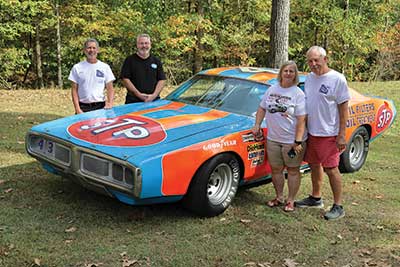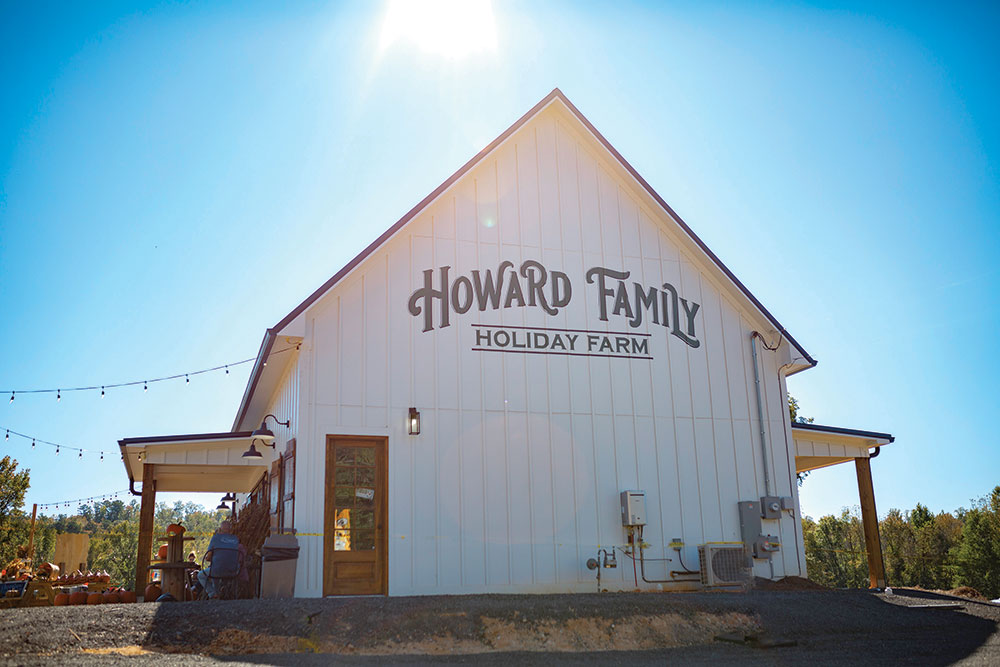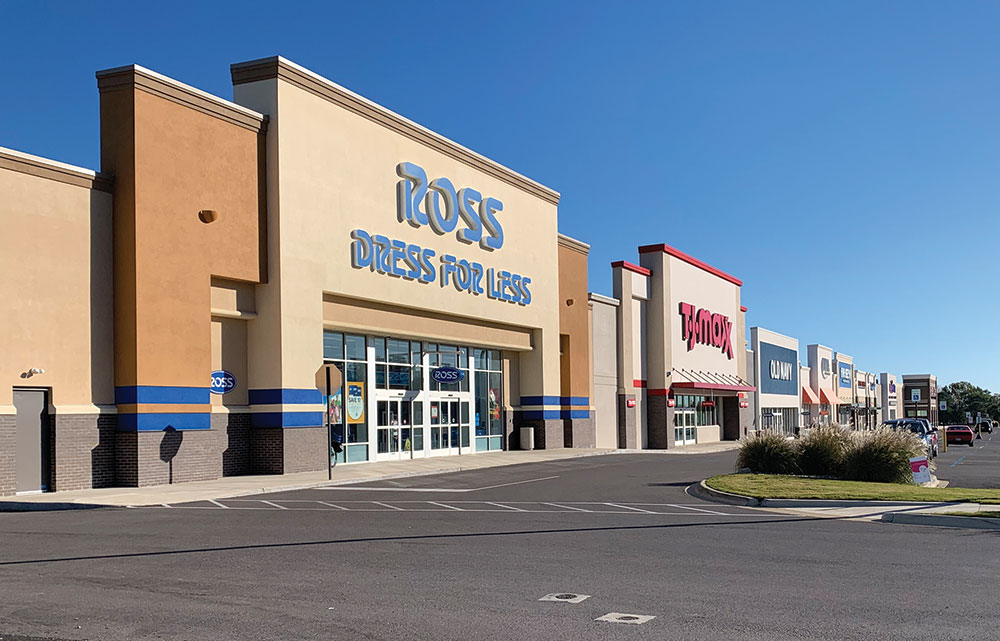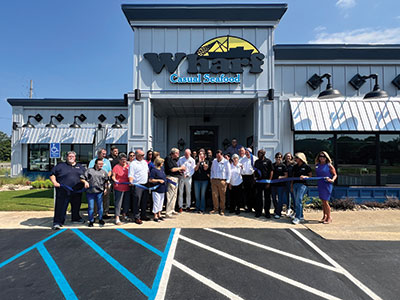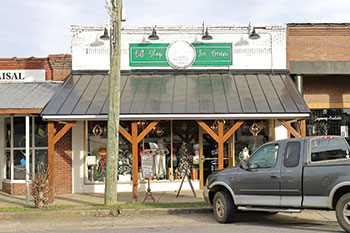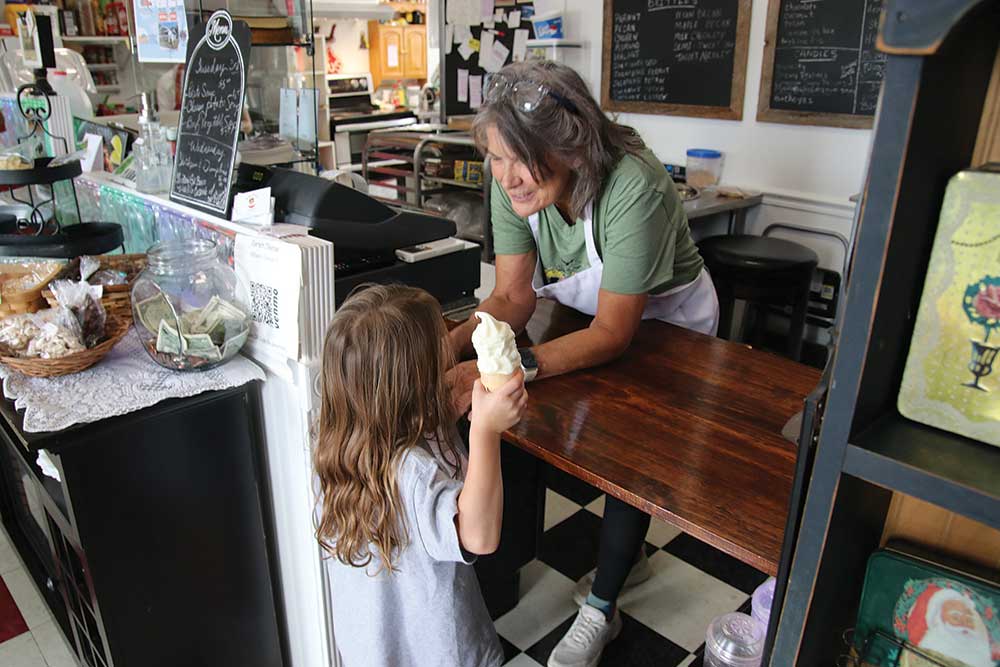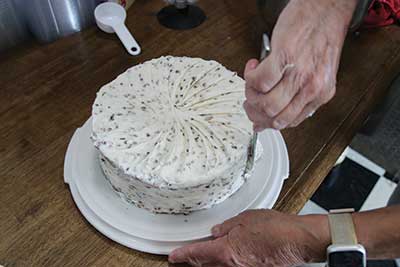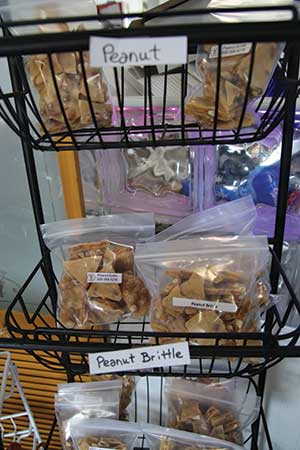Heritage Team puts the vr-r-r-oom
back into speedway legends
Story by Elaine Hobson Miller
Photos by Richard Rybka
Cars, airplanes and the museum itself are getting a facelift at the International Motorsports Hall of Fame in Talladega County, thanks to some St. Clair County guys and their buddies who share a love of automotive racing. And it all started when one of them visited the late Bobby Allison at his home in North Carolina.
“I went to his house in Mooresville in 2020 during COVID,” says Eric Perrine, who actually lives in Shelby County. “I had done an event with him in the past. My intention was to take him to the Herb McCandless Museum and have a fun day. McCandless was a champion drag racer for Sox and Martin and a friend of mine through the Mopar Circuit, where owners of Chrysler vehicles have car shows.”
While Perrine expected their conversation to be about cars and racing, Allison took it in another direction. He talked about his disappointment with the deterioration of his airplane at the Hall of Fame, as well as the overall well-being of the Talladega museum, as most people call it.
“He talked about getting the museum back into its glory days, and the local support for that,” says Perrine. “Certain things hadn’t been kept up.”
With the help of friends Herbie Griffith, Johnny Capps and Barry Isbell, all of St. Clair, Perrine led the restoration project of Allison’s plane, a twin-engine Piper. Perrine met Dennis Dobbs of Springville at a local car show and invited him to the annual Heritage Preservation Show, which takes place at the museum every fourth weekend in October.
Dobbs volunteered to help Perrine restore cars for the museum, which was established in 1983 adjacent to the Talladega International Speedway, known today as the Talladega Superspeedway. Dobbs brought another Springville resident, Wade Wells, on board. Then, Robert Allison (no relation to the racing Allisons) and Ricky Humphries joined them and the Heritage Preservation Team took shape.
“The Heritage Preservation Show last October went very well ,” Perrine says.
“We had 300 vehicles from all over the USA, about $45 million worth, including the Richard Petty Superbird, Marty Robbins’ Dodge Daytona and his 1973 Dodge Charger, Bobby Allison’s Torino and Mustang. We also had the first Dodge Daytona ever built, which resides there at the museum, the No. 88 test mule (a drivable, pre-production vehicle) and many, many more.”
Visitors came from all over world, including Australia, the Netherlands and Canada, and from all over the United States. The two-day event drew about 700 people, which Perrine says is good for a car show.
The show is always open to cars and spectators, and he wants people to understand the purpose of what the museum and the Preservation Team are doing, and the event ties into that.
“The 2024 show raised $25,000 to spend toward building the Bobby Allison tribute room at the museum,” Perrine says. To make a donation, go to imhofhp.com. “Look for the sponsorship page.”
In 2022, Donnie Allison’s 1969 Ford Torino (No. 27) became the restoration team’s first car project. Next came the 1974 Richard Petty championship Dodge Charger, then the Buddy Baker Dodge Daytona.
Since the 2024 show, Perrine has been looking for volunteers and sponsors to help build Allison’s tribute room. It will feature personal memorabilia from Allison, who died Nov. 9, 2024, less than a month shy of his 87th birthday.
Perrine gained possession of that memorabilia long before Allison’s death. “I’ve taken in 20,000 items that are in a climate-controlled storage place,” he says. “The collection will be rotated frequently so people can enjoy all the items through the years. Our whole purpose is to preserve the history of legends and legacies of Alabama racing.”
The teamrecently restoredthe Dodge Daytona that was test driven by Buddy Baker. During that test, he became the first driver to average 200 mph at Talladega. “The Baker car is worth a lot of money,” Dennis Dobbs says. “It would easily bring $200,000 to $250,000, and probably cost only $4,000 to $5,000 when it was new.”
Wade Wells talks animatedly about the “neat history” of this car, which was a prototype for Dodge Daytonas sold at dealerships. “Back in the 50s – 70s, race cars had to be street cars first,” he says. “Even street versions had wings on them. Manufacturers had to make and sell 500 of these to qualify that model to be put into a NASCAR homologation.” (According to Wikipedia, a homologation in motorsports is a testing and certification process for vehicles, circuits and related equipment for conformance to technical standards.)
Dobbs also has restored Camaros, Chevelles and Novas, and is working on a 1970 Mustang now. He has a shop next to his house that he calls Red Dog Automotive after a dog he had named, you guessed it, Red. Wade has a shop at his house in Washington Valley, and calls it Real Performance Muscle Cars, meaning real performance muscle cars.
Dobbs comes by his love of race cars naturally, but surprisingly, from his mother, not his dad. “My mother used to drag race in the ‘50s and ‘60s in New Mexico when my dad was stationed there in the Army,” he says. “She tinkered with the cars and that got me interested. Many good friends have taught me along the way.”
As an adult, he worked for Chandler’s Garage in Irondale for 15 years. He has worked for Motion Industries for 21 years and is in the maintenance department now. “The Torino led to the Petty car and that to the Baker Daytona,” he says. “Wade got involved because I asked him to come aboard. Wade is into drag racing and restoring muscle-car classics, like Corvettes and Camaros.”
One of the most challenging aspects of race-car restoration is locating parts, according to Dobbs and Wells. “A lot of them are custom made,” Dobbs says. “Motion Industries, where Wade also worked for 37 years, has allowed us to make some there.”
Numerous companies have donated parts and labor, Wells says. “Bryce Thomas Radiator in Gadsden is one, and U.S. Radiator in Gadsden. Also, V.P. Racing Fuels, through Rick Pennington, their distributor, has been very helpful in getting the special high-octane race fuel for the cars. Jamie Willis of Willis Performance Engines in Pell City has helped us out on all engine machining required. Herbie Griffith Paint and Body, Odenville, painted Bobby Allison’s airplane and other race car pieces. NAPA in Trussville has also helped tremendously. We rely on people’s goodwill.”
Goodyear recently provided them with $5,000 worth of tires and only charged them for taxes and shipping, according to Perrine.
Wells and Dobbs have made a few small pieces themselves, and several companies have put up money to help. Finding time to work on these projects can be a problem sometimes, though. Perrine will push the team when a car show, like the one held each October, is coming up.
“We especially want to thank the Springville Police Department for allowing us to operate these cars on the road (for shows and other events) without license plates,” Wells says. “You gotta road test these cars, right?”
Team members attended the Richard Petty Foundation event in Gatlinburg this past summer, and Petty was there. “We brought the car to the show for him to enjoy and autograph,” Wells says. “He signed the hood and the trunk, and it’s now at the museum.”
On the short list for restoration is the Wonder Bread car belonging to Ricky Bobby in the movie, Talladega Nights. It’s already at the museum. Bobby Allison’s Matador and a Davey Allison Thunderbird are on that list, too,but the Allison room is up first.
Back in the day
Most of the team members grew up watching the Alabama Gang race on television. “The original Alabama Gang really was only three guys: Bobby and Donnie Allison and Red Farmer,” says Perrine. “The irony is that none of them were from Alabama. They moved up here from Florida and weren’t even born there. They were labeled the Alabama Gang by other racers. You can blame the media for throwing others from Alabama into the gang. Farmer is the only one of the original gang who lives in Alabama. He’s 92. Donnie is 85, and Petty is 87. Bobby died last November at 86.”
The Hall of Fame has 122 -plus vehicles on display, according to Executive Director Adam Stocks. “We have a couple of volunteer organizations that are absolutely phenomenal,” he says. “They don’t get paid, they do it for love of the sport and restoration of these autos that have great history behind them.
“They put so much of their time, effort and some personal money into raising money and begging companies for parts, to put these vehicles back to running again. That says a lot. And it helps us a lot because we’re then able to take these vehicles to shows and other events. Take the Richard Petty car or Donnie Allison car we have, crank it up, every head turns and people walk to the car. That’s a great piece of advertising.”
The whole purpose of the Hall of Fame is to preserve the history of the legends and legacies of Alabama racing, according to Perrine. The team and other volunteers want to raise awareness of the museum and help raise money for it.
Wells puts it another way. “It’s our love of racing that keeps us going, to be able to carry on the legacy of early NASCAR and all forms of racing.” Adds Dobbs: “We’re restoring cars that belonged to some of the racing heroes we grew up with, and we want to honor their contributions to racing. If these museums close up, the cars end up in private collections and no one will see them anymore.”













